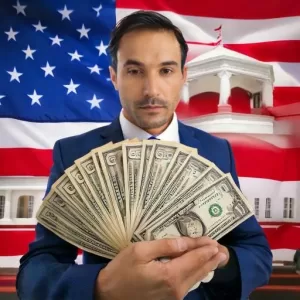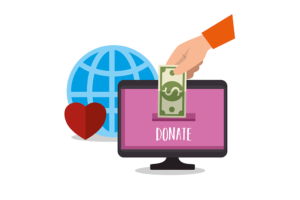Did Biden just ensure Fauci would never pay for his crimes?
Not at all.
In a move that, in hindsight, was both unsurprising and predictably contentious, President Joe Biden issued a preemptive pardon to Dr. Anthony Fauci, shielding him from federal prosecution for his role in America’s COVID-19 pandemic response. For those who suffered devastating losses, economic ruin, or profound emotional pain, this pardon felt like an insult—an attempt to erase accountability for decisions that forever changed lives. Worse, it makes us feel that evil has triumphed and we will always be at the mercy of those in power, even in America.
However, while Biden’s pardon may protect Fauci from federal criminal charges, it does not make him untouchable. States and individuals like you and I are unrestricted by this pardon.
We must make him accountable, and pursuing justice is not just a legal necessity—it’s a moral imperative.
Fauci’s actions during the pandemic raise serious questions about the ethics of his leadership. From promoting known dangerous treatments like Remdesivir to mandating vaccines that didn’t stop the spread, from enforcing arbitrary mask and distancing rules to vilifying alternative treatments that worked, like Ivermectin and Hydroxychloroquine (HCQ), Fauci’s decisions had far-reaching consequences. These policies, compounded by allegations of funding gain-of-function research at the Wuhan Institute of Virology, demand thorough investigation. Justice must be pursued to restore public trust, provide accountability, and ensure these mistakes are never repeated.
The Limits of Biden’s Pardon
The Constitution grants the president sweeping powers to pardon federal crimes, but that is it. Biden’s pardon protects Fauci from federal prosecution, but:
1. It does not shield Fauci from State-Level Criminal Charges: States retain the authority to prosecute crimes under their own laws, and Fauci’s actions may have violated those laws in places (one thinks of Texas, Idaho and Florida who have AGs more likely to act—Ken Paxton, Raul Labrador we’re looking at you). This is the case especially if those states enacted Fauci’s recommendations.
2. It does not exempt Fauci from Civil Lawsuits: Individuals harmed by Fauci’s decisions—whether through wrongful deaths, emotional distress, or financial loss—can still file civil suits seeking justice.
This distinction is critical, as it leaves the door open for both states and citizens to hold Fauci accountable, and we must. Here are some more details that lawyers should be considering.
State-Level Criminal Charges: Holding Fauci Accountable Locally
States have the opportunity to pursue criminal charges against Fauci. These charges must include:
1. Reckless Endangerment
Fauci’s recommendations often led to harmful policies, such as isolating elderly individuals in nursing homes and forcing visitation bans. These policies, implemented based on federal guidance, caused immeasurable suffering and death.
Example: Families must argue that Fauci’s advocacy for strict isolation protocols caused their loved ones to die alone, constituting reckless endangerment of their mental and emotional well-being—not to mention unnecessary cruelty.
2. Fraud
Fauci repeatedly made public statements about treatments, vaccines, and pandemic policies, many of which later proved inaccurate or misleading. If it can be shown that Fauci knowingly misrepresented facts to influence state decisions, fraud charges must be pursued. States can sue if they spend unnecessary amounts of tax payer funds for fraudulent reasons.
Example: States could claim Fauci’s initial dismissal of the lab-leak theory or his promotion of Remdesivir (despite limited evidence of its effectiveness) misled the state into adopting costly and harmful measures.
3. Manslaughter or Criminal Negligence
Perhaps the most serious charge states must pursue is manslaughter or criminal negligence. If Fauci’s decisions—such as suppressing alternative treatments or delaying critical information—directly contributed to preventable deaths, he must be held criminally liable.
Example: If it’s proven that Fauci suppressed effective early treatments like HCQ or Ivermectin, families who lost loved ones to COVID-19 must argue these actions amounted to gross negligence or even manslaughter.
Civil Lawsuits: Justice for Individuals
While criminal charges require a high burden of proof, civil lawsuits offer individuals and families a path to justice. Potential claims must include:
1. Wrongful Death
Families who lost loved ones during the pandemic must sue Fauci for wrongful death, arguing that his decisions contributed to their loss. For example:
· Promotion of Remdesivir: Fauci championed this drug despite reports of severe side effects like kidney failure and limited evidence of its effectiveness.
· Suppression of Alternative Treatments: By vilifying HCQ and Ivermectin, Fauci denied patients life-saving options.
Case Example: A family whose loved one died after being placed on Remdesivir, while safer options were dismissed, must sue for negligence and wrongful death.
2. Emotional Distress
The pandemic’s policies caused widespread emotional trauma, particularly for those who were unable to be with their loved ones in their final moments. Fauci’s guidance on strict visitation bans and prolonged lockdowns ignored the human cost of these measures.
Case Example: A grandparent who died alone in a nursing home due to Fauci-endorsed isolation policies would serve as the basis for an emotional distress lawsuit by the family.
3. Economic and Mental Health Damage
Prolonged school closures, business shutdowns, and lockdowns caused significant mental health crises and financial ruin. Families of those who suffered depression, suicide, or bankruptcy must argue that Fauci’s arbitrary guidance ignored broader public health impacts.
Case Example: A small business owner who lost their livelihood due to Fauci’s lockdown recommendations must sue for economic damages, claiming the policies were not evidence-based.
4. Wuhan Lab Funding
Fauci’s alleged role in funding gain-of-function research at the Wuhan Institute of Virology has become one of the most controversial aspects of his tenure. If it is proven that U.S. taxpayer dollars supported research that contributed to the creation of COVID-19, families of victims must sue for negligence or complicity.
Case Example: A family whose loved one died from COVID-19 would claim that Fauci’s oversight failures indirectly caused their loss, arguing he ignored the risks of dangerous research.
A Pattern of Misdirection: Fauci’s Vaccine Mandates
The Vaccine Mandates
Fauci’s push for vaccine mandates—despite vaccines failing to stop transmission—caused widespread harm. Millions were forced to choose between vaccination and their jobs, while others suffered adverse effects from vaccines promoted as “safe and effective.” Civil suits must challenge Fauci’s insistence on mandates despite evidence of their limitations. Those who can document that the Vaccines caused blood cloths could sue. Large Corporations who followed Fauci’s Vaccine recommendations and then saw their employees quit or die could sue.
Masks and Social Distancing
The arbitrary nature of mask mandates and the six-foot distancing rule became emblematic of Fauci’s inconsistent guidance. Despite limited evidence supporting these measures, they were enforced, causing unnecessary harm to businesses, schools, and mental health. Corporations and small business who had to bear the burden of social distancing thus losing business can sue.
Why Justice Matters
Accountability for Fauci is about more than punishing one man—it’s about restoring trust in public institutions and honoring the victims of failed policies. Here’s why pursuing justice is essential:
1. Transparency: Fauci’s decisions shaped the pandemic response, yet many of his actions—such as funding the Wuhan lab or suppressing alternative treatments—remain shrouded in mystery. Lawsuits and investigations must bring these issues into the light.
2. Acknowledgment of Harm: Families who lost loved ones, individuals who suffered mental health crises, and businesses that closed forever deserve acknowledgment of the harm caused by Fauci’s policies.
3. Preventing Future Mistakes: Without accountability, future leaders may repeat the same mistakes. Holding Fauci accountable ensures safeguards are put in place to prevent similar disasters.
Conclusion
While I am not an attorney, it seems clear that while Biden’s pardon may protect Fauci from federal prosecution, it does not erase the liability for the harm caused by his decisions at other levels. State-level criminal charges and civil lawsuits remain viable paths to justice, offering hope for those who suffered during the pandemic. From promoting questionable treatments to suppressing alternatives, from arbitrary rules to vaccine mandates, Fauci’s actions demand scrutiny.
This fight is about more than Fauci—it’s about ensuring that public officials are held accountable, truth prevails, and the victims of the pandemic are never forgotten. The pursuit of justice is long overdue, and it’s time to demand answers and accountability for the sake of America’s future. Fauci must be made an example so that no human in the future history of America ever tries such evil again.
May I recommend entire legal practices start looking into this. Fauci has made millions from corporate interests, let’s make sure he doesn’t ever get to spend that on himself.
I’ll close with two things.
1. Those corporations that released those vaccines have not been pardoned and can be sued at the Civil, State and Federal level and there are billions to be made once we can put some money into proving the vaccines have been killing people. I hope some lawyers are reading this. In addition CEO’s can be held personally liable. In fact, anyone who knew the truth who was an officer or director can also be sued.
2. Finally, President Biden did not pardon himself (not that it would be logically feasible). This leaves the option open for indictment, particularly given his admitted public confession in pressuring Ukrainian officials to do what benefitted his son. Further investigation could uncover additional hidden crimes, making the case for legal action stronger. (Pam Bondi, are you paying attention?)
Share and forward this if you agree. You can use this link to share: https://conta.cc/3CgZKcd











